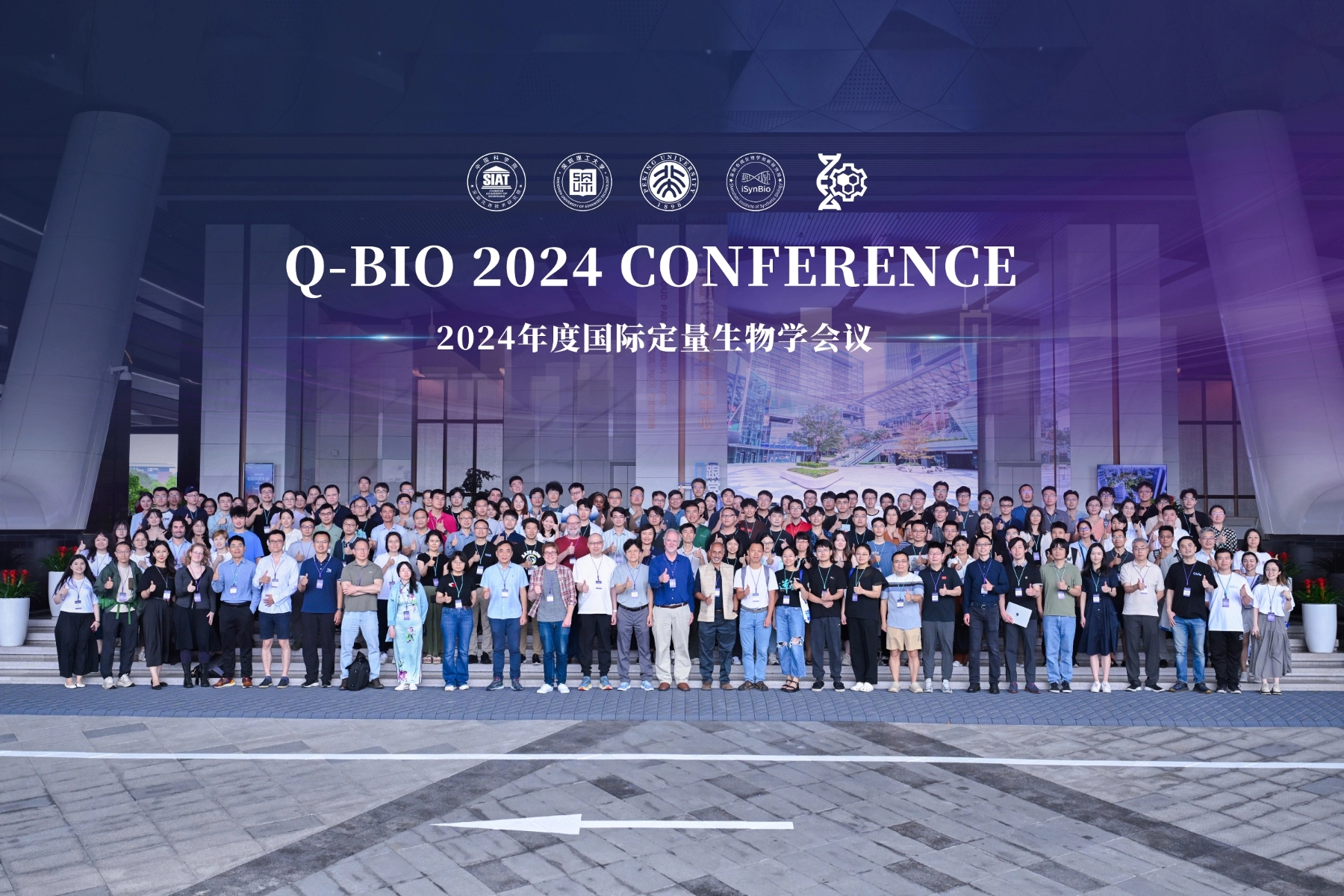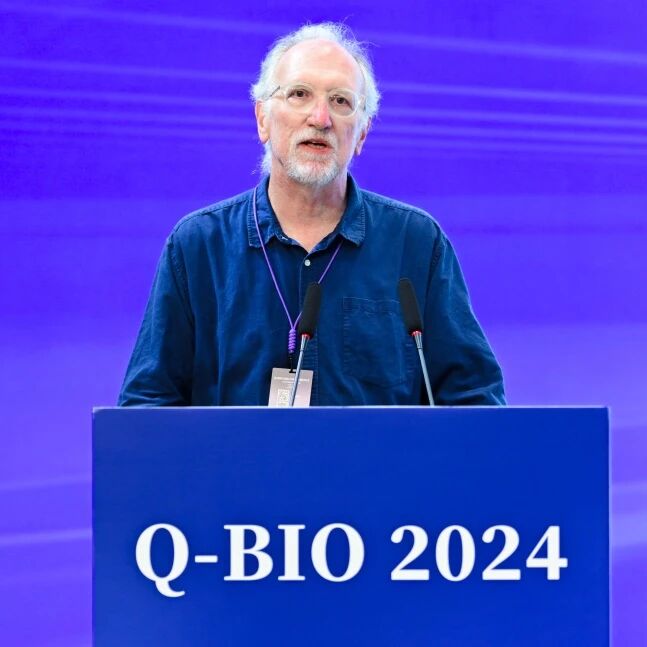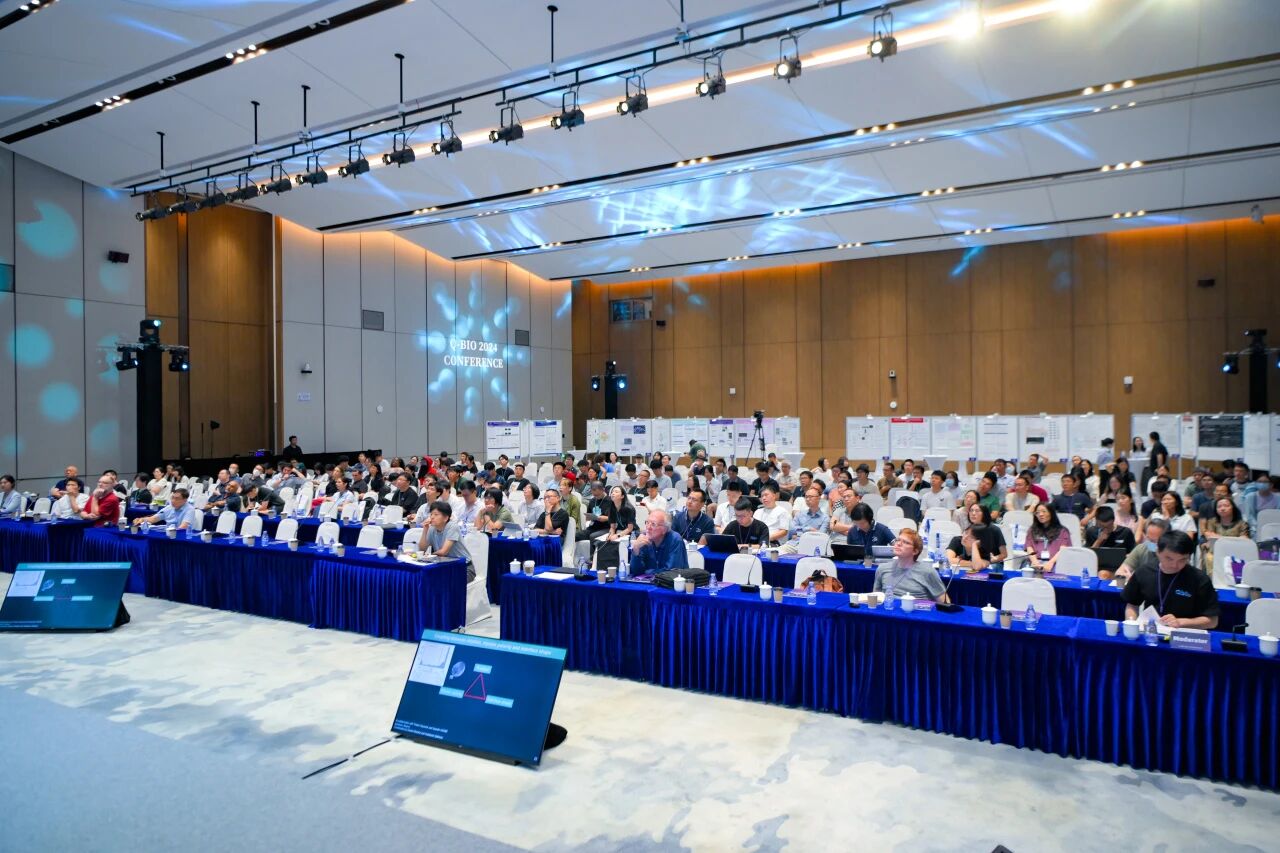
-
Date(s)
26/07/2024–29/07/2024
-
Address
Shenzhen, China
The Q-Bio conference, renowned for its high reputation and widespread influence in biophysics and systems biology, was first launched in 2007 through a joint initiative by research teams from Los Alamos National Laboratory and the University of New Mexico. Having now been held 18 times across the globe, it has become a cornerstone event in the field.
The 18th Q-Bio International Conference on Quantitative Biology successfully convened at the Guangming Cloud Valley International Convention Center in Shenzhen from July 26th to 29th, 2024. Building on the success of the 17th edition, this year's conference once again returned to Shenzhen, attracting over 230 research scholars from the United States, the United Kingdom, India, and other countries worldwide. Centered on the theme "Quantitative laws and prediction models of complex living systems", participants gathered to explore development prospects and potential opportunities in quantitative and synthetic biology.
The event featured on-site presentations covering cutting-edge topics such as synthetic biology, systems biology, artificial intelligence, aging, tumors, molecular evolution, and microbiome research. Speakers shared the latest scientific achievements and discussed future directions and application prospects in their respective fields. The conference fostered a vibrant academic atmosphere, with enthusiastic interdisciplinary discussions and exchanges enriching the dialogue.
A special guest, Professor James E. Ferrell from Stanford University, praised the diversity and depth of the conference topics. He highlighted the ongoing challenges in predicting gene circuit behavior and emphasized the value of the conference in providing knowledge and inspiration for scholars focused on quantitative methodologies.

The conference was jointly organized by the Shenzhen University of Advanced Technology, Chinese Academy of Sciences, Shenzhen University of Technology, Peking University, Shenzhen Institute of Synthetic Biology, and the Shenzhen Synthetic Biology Association.


